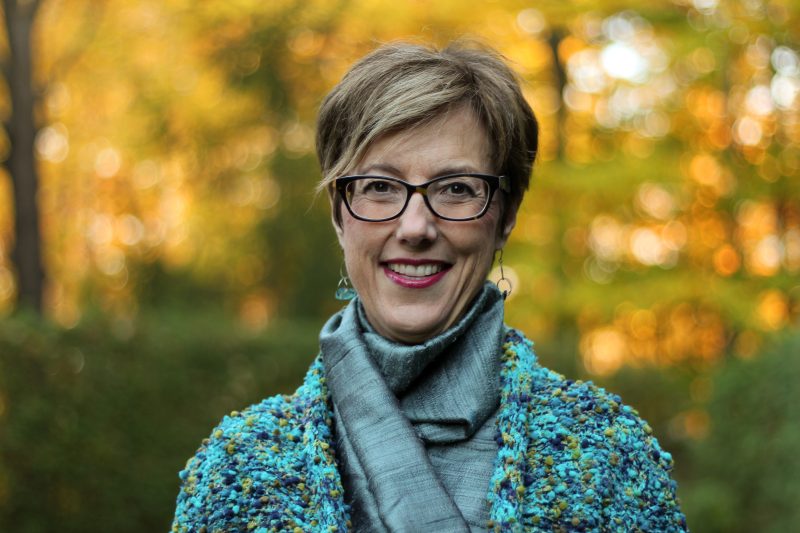PUBLISHED: 24th August 2020

By Ninon Valade
The importance of knowing your family’s medical history
At the age of 48 I was diagnosed with breast cancer. When I found out it was triple negative breast cancer, I did my own research and learned there could be a link between triple negative breast cancer and genetic mutations. This information made me want to have genetic testing.
My oncologist was not of the same opinion, especially since I told him that none of the six women in my mother’s family had been diagnosed with breast cancer, but my father died of metastasized prostate cancer at the age of 82, only 6 months after being diagnosed. I insisted on having genetic testing and had it done after I completed my chemo and radiation treatments. As I was filling out the genetic testing forms, I was asked the cause of death of my paternal grandmother, who I had never known. She passed away at age 62. It was then that my brother told me she died of breast cancer.
I am grateful for my genetic testing
I was tested for a panel of 13 French Canadian mutations, including BRCA1 and BRCA2. I was diagnosed with a PALB2 mutation and subsequently had a contralateral mastectomy and a complete hysterectomy.
Learning that I had a genetic mutation was difficult, but provided me with relief, as well. I was grateful that I was tested and relieved to have an explanation for my breast cancer. I felt more empowered and knowledgeable. I had blamed myself for not managing stress properly and felt it had contributed to my cancer.
Finding FORCE helped me understand my genetic mutation
After learning of my genetic mutation, my genetic counselor recommended I see a gastro-oncologist. On my train journey to the doctor, I found FORCE’s website. By the time I was in the office I was knowledgeable on PALB2, its increased health risks and that French Canadians were over-represented in this group. The FORCE website contained articles that were crucial in my understanding of my genetic mutation. After asking my doctor a lot of questions during my appointment, he asked if I was in the medical profession. I laughed. This started my journey with FORCE at my side.
FORCE’s website will guide me in sharing my genetic mutation with my family
Then came the worry for my extended family and for my children. My brother also has the same genetic mutation. I have not yet shared the news with my children, but I plan to discuss it with them soon.
The FORCE website is my resource for hereditary cancer information. Before reading the website, I didn’t know how I would explain my genetic mutation to my children. The tools about talking to family members on the FORCE website will give me what I need to be equipped and confident to do that soon.
With FORCE we are not alone!
I have been volunteering as a peer navigator for FORCE in large part because of the big welcome I received. I tell my friends who have breast cancer and a genetic mutation to review FORCE’s website, because it is a wealth of reliable information and support. With FORCE I don't feel alone and you won’t feel alone, either.
Ninon Valade, PALB2 Breast Cancer Survivor
2 Comments
June 14, 2021
Thanks so much for your article, Ninon! You are the first person I've read who also had TNBC and PALB2. When I was diagnosed with stage 3 TNBC at 40 yrs old 3 years ago, I was absolutely gobsmacked. I'm crazy healthy, active, have two small kids, etc. I also didn't think I had a history but my paternal grandmother died of breast cancer metastasis to her liver when I was a baby. Like you, I went the chemo, double mastectomy (I also had it in my lymph nodes and had them removed) and radiation. My dilemma now is whether to do a proactive hysterectomy (or at least get my ovaries and tubes out). What drove your decision to have a hysterectomy? Best to you and thanks in advance, Kelly
Kelly
Reply
February 7, 2022
Hi. Thank you so much for your story. I am an immigrant Canadian. I live in Milton Ontario and work in Toronto. I am originally from Central American. I was just diagnosed with PALB2 5 days ago. I have not had any appointments yet - the genetic counsellor told me over the phone. My Dad is 81 and with prostate cancer. When you said your Dad died at 82 … I thought mine will likely die then too. Anyways it’s nice to find a fellow Canadian. :)
Cristiana Delgado
Reply